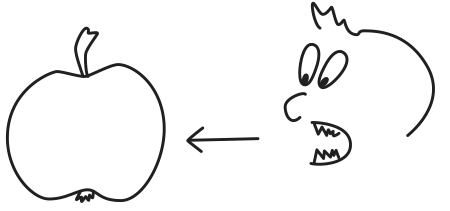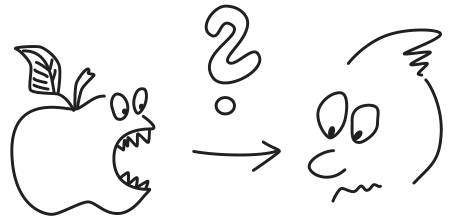How to win a prize for your excellent German !
My courses take place at your premises in 🇱🇺 Luxembourg.
Communicate elegantly and fluently in German
Express yourself appropriately in any situation
Get compliments from native speakers !
Book a course :
➤ Send me an email:
- Why do you want to learn German?
- What is your current level?
➤ I’ll make you a price offer.
➤ We’ll make an appointment.
How do you win a prize for your excellent German ?
 Learn,
Learn,
practise,
always repeat our lessons!
Who awards a prize for excellent German?
"You speak German very well!" - a compliment from a native speaker. This is a reward for your learning and practising and a motivation. The question is: What does the native speaker think is good? What is his perspective, and what criteria does he use to award "prizes"?
The perspective of your interlocutor
Your interlocutor has a different perspective than you: You have a list of difficult points that you have practiced in your German course. Of course, you want to show yourself and your interlocutor that you know and master these tricky details.
There is a certain probability that this will not work: The native speaker often does not even know what is difficult about his language, he does not think like your language teacher. Your efforts to apply all the grammar rules you have learned may not be rewarded.
An important aspect
Your interlocutor wants to understand first and foremost what you say! The easier he understands you, the better he likes your German.
It is difficult for him to follow your complicated sentence constructions, which - if you are not yet perfect - inevitably lead to mistakes. He simply wants to have a conversation with you, or : in a work situation he wants to get the information he needs.
The content is important!
Acrobatics are not rewarded - comprehensibility is!
In the following, I would like to give you some tips on what to focus on to make a good impression on your counterpart.
The sentence
A sentence has a full stop at the end.
The end of a sentence is like landing after a flight. Focus on the end of your sentences so that your statement doesn’t disappear into nothingness! Lower the voice at the end of each sentence!
First of all: A sentence has a content! We remember: The content is important for your counterpart. It’s easy for your interlocutor to follow you if he can process and understand each sentence first before your next sentence comes.
My favorite principle because it’s so simple: one thought = one sentence.
 Don't list sentences like a shopping list:
Don't list sentences like a shopping list:
I buy milk (voice up, comma), vegetables (voice up, comma), meat (voice up, comma) and so on.
Lower your voice at the end of your sentence! This makes it clear that this sentence is a unit of meaning - with an important content.
Short break.
Then comes the next thought, the next idea, the next sentence.
Be careful with subordinate clauses
In German, the verb in subordinate clauses has to be at the end, right? And it took you some effort to get this into your head. You have not yet acquired a routine to apply this rule in a real conversation.
You are proud of your perfect subordinate clauses, and you get better the more you practice. That’s right, but don’t expect your interlocutor to admire you for your subordinates. Even if your subordinate clauses are absolutely correct (wow !) : For the other people, the conversation is not very effective if they have to wait until you have sorted your grammar rules.
I propose a compromise: practice subordinate clauses when talking to patient people. If you have to "assert yourself" - an unfair situation! - against impatient people, maybe in a work situation: Communicate your content in short main sentences!
 By the way:
By the way:
Even many native speakers lose the thread
if they make their sentences too long.
So don’t talk any more complicated than you think!
It’s better to have two short, easy-to-understand sentences than a long, bumpy one!
Where is it worth investing effort?
The inversion
You have to swap the subject and the verb if your sentence does not start with the subject.
Example:
Wir fahren am Wochenende nach Paris.
Am Wochenende fahren wir nach Paris.
A little concentration will help you apply this rule until you gain routine.
I'm afraid you will NOT be actively praised: "Oh, great results in your quarterly report, and also: you're really good at the inversion!" - That is rather unlikely.
But: If you stubbornly ignore this grammar rule, it sounds like a scratching noise in your interviewer’s ear - perhaps without the native speaker being able to explain exactly why.
So: It is worthwhile to make some effort here! Don't worry, there's no problem for comprehension if you make mistakes.
Separable verbs:
This is about the verbs with a prefix, which you have to separate and put at the end of the sentence.
Example:
Es kommt auf das Wetter an!
Attention: Don't forget this one syllable at the end of your sentence !
If your sentence is too long, you may not be able to finish it right: you forget that you still have to put that last syllable at the end of your sentence. It can irritate your counterpart if your last word is always missing.
However, even native speakers sometimes forget the last word, but that doesn’t sound good either.
 Summary:
Summary:
Your interlocutor is NOT thinking, "Oh, it's exhausting for me to listen: So he must be good!" - but he wants an answer that he understands immediately.
Content is important ! If something is easy to explain: explain it simply - message received, done!
Short sentences reduce the risk of mistakes!
Tenses are not the right way to win a prize.
The use of tenses in German is a bit ... vague:
- There is no "continuous".
- Past tense (generally):
- Spoken language: perfect tense (modal verbs/ sein/ haben in simple past).
- Written language: simple past
- Future tense: please use sparingly. If you have a signal like "next week" or "tomorrow" : present tense is ok.
My point is: the choice of tense in German is unsuitable for expressing subtle nuances.
The passive voice
In technical discussions - about finance or about technical details - the passive is a good tool for expressing objectivity and for focusing on an impersonal topic.
There are two passive forms in German:
- For a completed process, i.e. for a state: "Das Auto ist gewaschen."
- For a process that has not yet been completed: "Das Auto wird gewaschen."
This passive form
- offers a solution to the problem that there is no "continuous form" in German.
- describes general procedures or rules: « Die Treppe wird jeden Samstag geputzt.“
- avoids addressing someone directly: "Die Treppe muss geputzt werden!“ is not the same as: "Du musst die Treppe putzen!"
So it is worth learning how the passive works.
Declination
Correct declination makes a big difference.
Unfortunately, your interlocutor perceives it rather unconsciously if you speak German at a high level. He doesn’t say, "Thanks for the update, and by the way, I really admire how you master the declination!"
But mistakes disturb the flow of the conversation and therefore stand out. However, declination is difficult. How do you talk about a topic while paying attention to the right cases?
 Attention:
Attention:
Please do not think about the right ending for several minutes during your conversation.
Declination - learn, practice, apply
The German language is considered to be "difficult", for several reasons. First and foremost, it is the declination that causes problems for students. How can you learn to use the correct declination of articles, pronouns and adjectives?
Above all, you should not be afraid. You will do many things intuitively right. If you have many opportunities to practice, for example if you listen to German every day and speak it actively, you can be sure that your "quota" of correct declinations will automatically get better and better.
The other possibility is to systematically work through the rules of declination. There is a risk that you will feel insecure for a while and speak less fluently, because you suddenly ask yourself in the middle of a sentence: "What case do I need here?". But once you have gone through this stage, you will find that you make fewer mistakes and speak with more confidence.
What do we need the declination for?
Language is a tool of communication. We talk about ourselves and about our relationship to the world.
Examples:
Ich esse gern Schokolade.
Peter unterschreibt seinen Arbeitsvertrag.
Vielen Dank, dass du mich zu deiner Party eingeladen hast.
We also talk about things and how they relate to us and the world.
Examples:
Das Auto gehört mir.
Die Vase steht auf dem Tisch.
Unternehmen müssen Körperschaftssteuer bezahlen.
These sentences make sense to us because we understand what the relationship is between the parts of the sentence. There is a subject in each sentence. This is the protagonist. It can be a person, it can be a thing. The subject acts; it possesses, judges or confronts someone or something: the object. For our understanding it is important to clarify who or what the subject is and who or what the object is. For this we use the cases: nominative, accusative, dative and genitive. The subject is nominative, the other cases remain for the objects. You can recognize the case by the endings of the articles, pronouns, and adjectives.
Example:
Der Mann isst den Apfel:

Den Apfel isst der Mann:

Der Apfel isst den Mann:

 Unfortunately,
Unfortunately,
there are some articles and pronouns with several functions, so declination is not a really efficient « tool ». Annoying: hard to learn and still not always clear ...
How do you know if it's "der", "die" or "das"?
It's "der Mann", "der Bruder", "der Sohn", but "die Frau", "die Schwester", "die Tochter". You don't need to learn that: the article is based on the biological gender - the same with e.g. "der Spanier"/ "die Spanierin" and "der Manager"/ "die Managerin".
Where does it come from that things also have different articles, e.g."der Tisch" but "die Lampe"? This has not yet been clarified in science. Attention: not every „thing“ is neutral, like "das Sofa". The article for the plural is always "die". Not very practical: "die" is also female singular - one of those double functions that cause confusion.
How should you learn the articles?
It's best to learn the articles from the beginning ... ideally! But if you miss it, it's not a disaster either. You will learn the articles gradually the more you hear and read.
So don’t worry !
- Everything you say is understandable, even if you use the wrong declination endings.
- Why not set a goal to improve your « quota » of correct declination - and not all at once?
- Keep your spontaneity! Your interlocutor is interested in what you have to say!
I wish you many good conversations!
And the prize for your excellent German
will not be long in coming !



